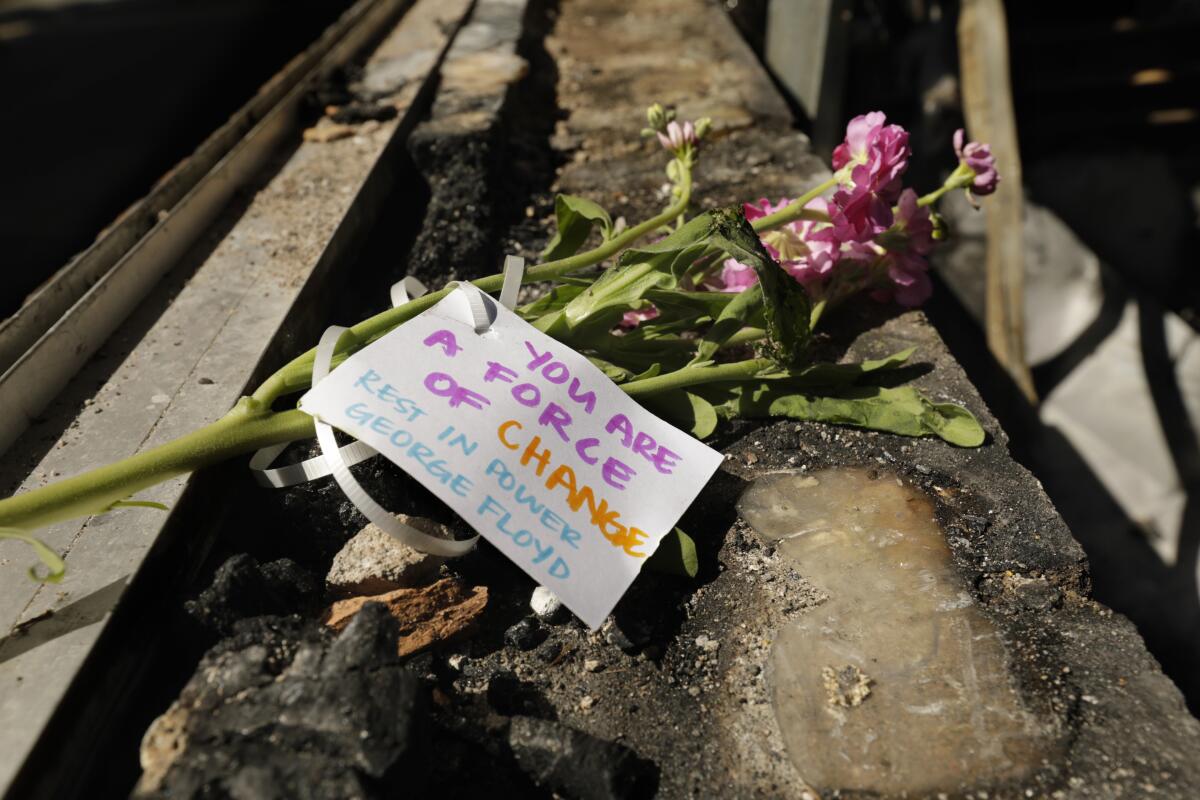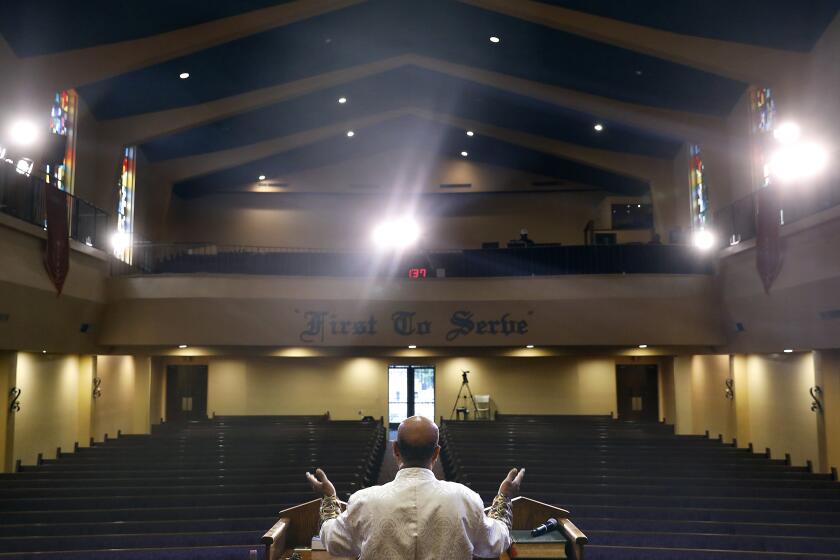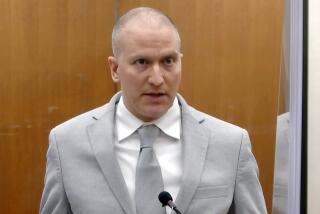Does third-degree murder sound too mild for Derek Chauvin? It’s exactly right

- Share via
There is an understandable clamor to throw the book at Derek Chauvin, the Minneapolis police officer who kneeled on George Floyd’s neck for nearly nine excruciating minutes, all captured in a video that has sparked violent protests around the country.
Outraged citizens are calling on prosecutors to raise the state charges against him to first-degree murder from third-degree murder and manslaughter in the second degree. Others want the federal government to step in and prosecute Chauvin for civil rights violations.
But if avoiding the potentially cataclysmic consequences of acquittal is the goal, the case is exactly where it should be: charged with caution and in the hands of Hennepin County, Minn., prosecutors.
Police misconduct cases are notoriously difficult to prove. In direct contrast to other crimes, more often than not the jury acquits or settles on a lesser charge. It is incumbent on the prosecutor to fully appreciate the differences between the slice of the case everyone may see in a high-profile video, and the complete case, along with the legal standards, that a jury of 12 will one day use to come to judgment.
Local religious leaders are helping their flocks understand the unfolding crisis.
If you remember the Rodney King case, you remember the searing video recording of officers beating King 33 times with a baton.
But the case in court also included testimony that King took the police on an 80-mile chase after he was ordered to pull his car over, and that the officers reasonably believed King was high on PCP (he wasn’t, though he did have marijuana in his system) when they stopped him. Combined with law that told the jury to consider the situation from the vantage point of a reasonable police officer, and the tendency of many juries to give police the benefit of the doubt in dangerous situations, that evidence led the state jury to acquit on most charges.
The federal team, at that point prosecuting not a murder case but a “denial of civil rights” case, had the benefit of seeing the way the jury reacted in the state trial. They approached the facts very conservatively. The theory they presented conceded the reasonableness of the initial force against King but isolated the very end of the beating as the point where the officers crossed the constitutional line.
The lessons are clear for the Chauvin case. The bystander video shot outside Cup Foods in Minneapolis understandably persuades nearly everyone that there is no punishment that is too severe for Chauvin. But what can prosecutors actually prove?
Under Minnesota law, murder in the first degree, the charge many are calling for, requires premeditation. A 911 call brought Chauvin and Floyd together; premeditation is plainly not suited to the facts.
What about murder in the second degree? It requires the prosecution to prove beyond a reasonable doubt that the defendant intended to kill. Look carefully and soberly at the video — all 8:46 minutes of Chauvin’s knee on Floyd’s neck — and put yourself in the prosecutor’s shoes. Can you confidently predict that a jury, shielded from outside commentary during the trial and exposed just to the strongest arguments on both sides, will unanimously determine that Chauvin without a doubt intended to kill Floyd?
The defining fact of this killing — relative to other cases of unreasonable force — is Chauvin’s chilling cavalier nature as his knee pushes on Floyd’s neck, a move that Minneapolis police are permitted to use only if a suspect is actively resisting. (Floyd was lying flat, in handcuffs.)
Prosecutors will argue that Chauvin’s almost lackadaisical attitude reveals the very essence of a “depraved heart” or extreme indifference to human life, which is the level of intent required to prove murder in the third degree.
To be safe, prosecutors added another, lesser charge — manslaughter in the second degree. That requires not depravity but just negligence under Minnesota law, that Chauvin created “an unreasonable risk, and consciously [took]chances of causing death or great bodily harm,” as the complaint against him reads.
The defense will present that very same evidence — Chauvin’s impassivity — as an indication not of depravity but simple inattention. His lawyers will be able to point to important additional facts besides the video. According to the store clerk who called 911, Floyd was “awfully drunk” and “not in control of himself.” Floyd resisted getting into the police car, saying he was claustrophobic, and he complained about not being able to breathe before he was handcuffed on the ground. Finally, the lawyers will mount an argument over the exact cause of death.
There are, after all, competing autopsies. The county medical examiner concluded that the cause of death was “cardiopulmonary arrest complicating law enforcement subdual, restraint, and neck compression.” He also noted underlying heart disease. The examiner hired by the Floyd family said there were no underlying conditions and the cause of death was “mechanical asphyxiation.”
Hennepin County Atty. Mike Freeman’s charges against Chauvin may seem too modest, but they fit the facts. As for the prospect of a federal prosecution, the more appropriate role for the Department of Justice at this point is exactly what it’s doing — helping with the investigation. The feds will be ready to serve as a backstop if justice isn’t served at the state level, as they did in the Rodney King case.
Given the video, the community outrage and the righteous national anger engendered by Floyd’s killing, there’s a temptation for prosecutors to go for broke. But in this case, they were wise, not to mention fair, in going no further than a conservative view of the evidence could take them.
More to Read
A cure for the common opinion
Get thought-provoking perspectives with our weekly newsletter.
You may occasionally receive promotional content from the Los Angeles Times.







